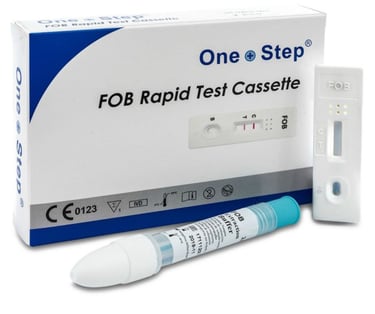Bowel cancer tests
8/17/20231 min read
Bowel Cancer: Symptoms, Diagnosis, and Treatment
Bowel cancer is a type of cancer that starts in the large intestine (colon) or rectum. It is the fourth most common cancer in the world, and the second leading cause of cancer death.
The symptoms of bowel cancer can vary depending on the stage of the cancer. Early symptoms may be mild and go unnoticed. However, as the cancer grows, it can cause more noticeable symptoms, such as:
Change in bowel habits, such as diarrhoea, constipation, or narrowing of the stool
Rectal bleeding or blood in the stool
Abdominal pain
Unexplained weight loss
Fatigue
Weakness
Nausea or vomiting
If you experience any of these symptoms, it is important to see a doctor right away. Early detection is key to improving survival rates for bowel cancer.
Diagnosis
There are a number of tests that can be used to diagnose bowel cancer. These include:
Faecal occult blood test: This test looks for tiny amounts of blood in the stool. Blood can be a sign of polyps or bowel cancer. Our FOB test can detect faecal occult blood at 50ng/ml or higher.
Flexible sigmoidoscopy: This test allows the doctor to look inside the lower part of the bowel using a thin, flexible tube with a camera.
Colonoscopy: This test allows the doctor to look inside the entire bowel using a thin, flexible tube with a camera.
CT colonography: This test uses X-rays to create a detailed image of the bowel.
Biopsy: A biopsy is a procedure in which a small sample of tissue is removed from the bowel and examined under a microscope.
Treatment
The treatment for bowel cancer depends on the stage of the cancer, the patient's overall health, and other factors. Treatment options may include surgery, chemotherapy, and radiation therapy.
Prevention
There are a number of things you can do to reduce your risk of bowel cancer, including:
Eating a healthy diet
Exercising regularly
Maintaining a healthy weight
Not smoking
Limiting your alcohol intake
Taking aspirin or other non-steroidal anti-inflammatory drugs (NSAIDs)
If you are concerned about bowel cancer, talk to your doctor.
Bowel cancer is a serious disease, but it is often treatable if it is detected early. If you have any concerns about bowel cancer, talk to your doctor. They can help you decide if you need to be screened and what tests are right for you.
Subscribe to our newsletter
SeraDiag, 128 City Road, London, EC1V 2NX


